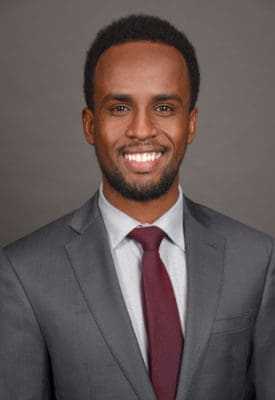
I was born into a rural community in central Somalia where walking was the default mode of transportation. My perception of the world and the scale of things were shaped by my early experiences and interactions with the natural world. I recently reflected on the distances between the different towns I knew growing up. I used Google Maps to measure the distance between the places I knew as a child. Cities and towns that I believed to be about 100 miles apart were only 10 to 15 miles apart. This was a fascinating discovery of how simple and uncomplicated my transportation options were growing up. I could walk everywhere I needed to go. I believe it is because of this upbringing and a career in transportation planning that I have a deep appreciation for walking and walkability.
In my teens and twenties, I lived in many cosmopolitan and densely populated cities like Mogadishu, Nairobi, Karachi, Lahore, and most recently Minneapolis. These were all fairly walkable cities that accommodated my passion for walkability. Life in the suburbs is an entirely different case as I am now learning.
As a new immigrant, finding reliable and affordable transportation became an immediate necessity. This time I lived in a country where I could not walk everywhere I wanted to go. My first job was located 40 miles away from where I lived. I didn’t own a car at the time. It didn’t take too long for me to realize vehicle ownership was a prerequisite for upward mobility and financial independence. During my urban planning graduate school, I learned that it was entirely by design.
In my local city council, I work hard every day to challenge the basic assumption that we should own and maintain a car to lead thriving and successful life in America. We have the resources and expertise to transform our communities into healthy and safer communities that invite people into our public spaces. This is why I am extremely excited and honored to join America Walks as a board member to be part of this national effort to make our streets safer for all people.